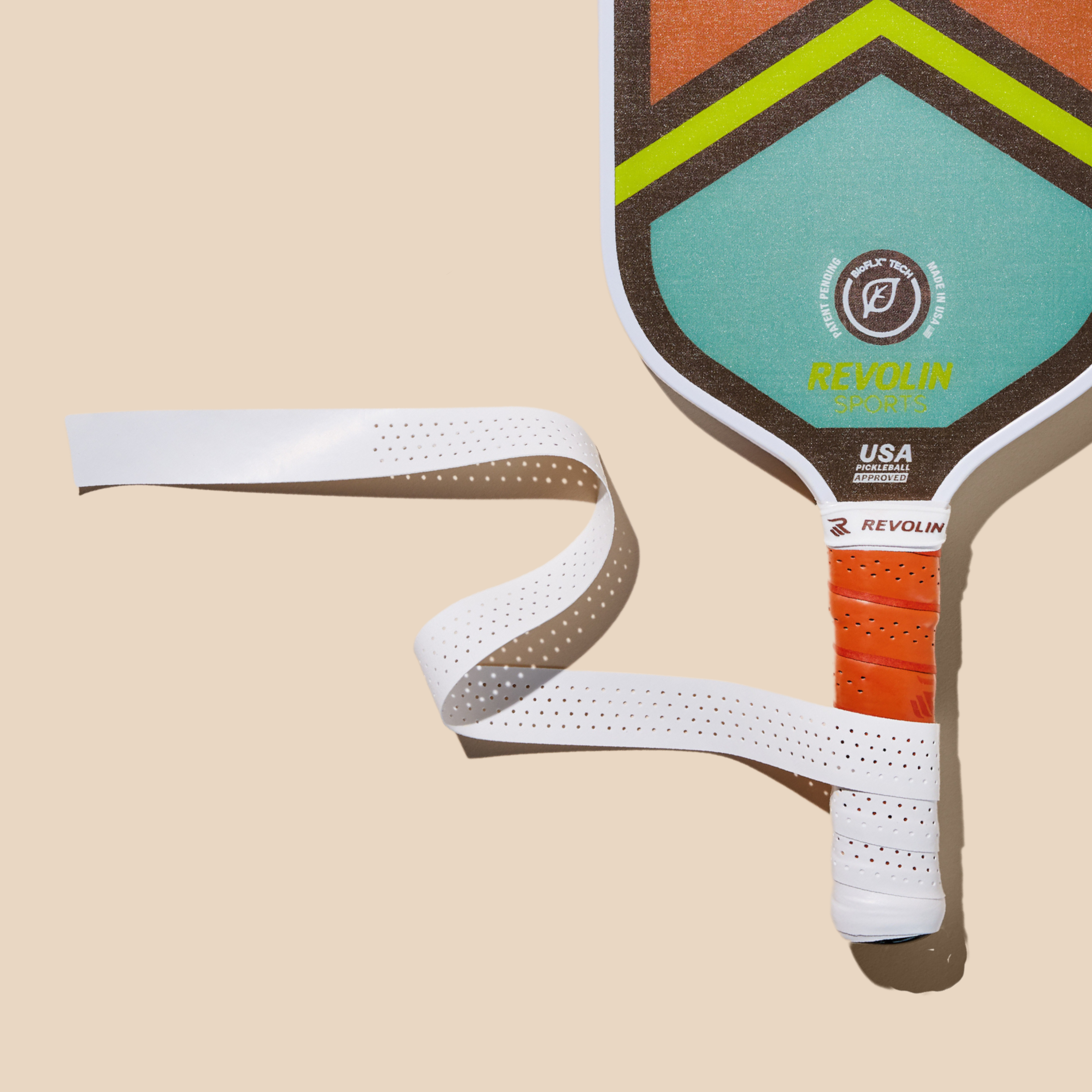On September 25th, we hosted an 88 person pickleball tournament in Holland, MI. Overall, the whole day was a massive success. I mean, who has ever heard of a pickleball tournament that runs on time?! Plus, we were able to donate 25% of the proceeds to our local Boys and Girls club. It was the perfect way to give back through the sport we love. Our incredible tournament director, Elly Espinoza, pulled it off flawlessly, but behind the scenes, it took a lot of preparation and hard work.
We grew a ton hosting our second pickleball tournament and thought others might want to learn from our experience. If you've ever wanted to host a pickleball tournament, read our guide below!
12 THINGS YOU SHOULD KNOW BEFORE RUNNING A PICKLEBALL TOURNAMENT
GET STARTED EARLY
To set your tournament up for success, you want to make sure that you give yourself and your team at least a couple of months to plan and prepare. The task list is LONG. In this time, you need to choose and book a venue, advertise your tournament to players, recruit volunteers, and obtain sponsors (if you wish). In our case, we had our first meeting two months before the tournament date to decide on a venue and get the whole ball rolling.
Our number one tip is to not underestimate how much work running your first tournament is. List out all the steps, plug them into a timeline, then start early and don’t procrastinate!
PUT PLAYERS FIRST
Second only to staying organized, make sure you’re there to serve the players. With every choice you make in the planning stage, think about how it will impact the player experience. Over-communicate whenever possible. Mistakes will happen, but setting clear expectations and keeping the player experience top of mind will help you navigate all challenges.
For example, it rained the morning of our outdoor tournament. We had blowers and some old towels, but the courts weren’t drying as quickly as we’d like because the sun was hidden by the trees. Instead of forcing an on time start on slippery courts, we talked to each team individually and understood their comfort level with the mostly dry courts. We made sure everyone felt safe to continue, even though it meant a delayed start. People come first.
SET YOUR GOALS
Why are you running a tournament? It’s important to think through what you’re trying to accomplish. Here are some common goals: have fun with friends and family, raise some money for a good cause, make a profit, grow awareness for your organization, or host a USAPA certified event. If you’re looking to make a profit or raise money for a good cause, consider finding some sponsors. If you want to host a USA-Pickleball sanctioned event, there are lots of specific guidelines you’ll need to follow. You will need to take very different factors into account depending on what type of tournament you want to host.
ADVERTISE YOUR TOURNAMENT
If nobody knows about your tournament, you’re toast! Advertising is the best way to get the word out and looks different for everyone based on your goals. Our goal was to get 64 players to sign up for our tournament, so we knew we had to go outside of our personal networks.
No matter your goal, the first step is to gather all the necessary information. You can make a flyer (digital and/or print) and include all the relevant details like the address, date/time, competition brackets, registration fee, registration link, registration deadline, and who to contact if people have questions. To get this info out, Facebook is your best friend. Find local pickleball groups and share the details of your tournament. Ask your friends to share too! If you’re having trouble reaching people in your area, you can always try paying $20 for a Facebook ad targeting pickleball players in a geographic area.
Offline, spread the word to your pickleball friends. You can physically post flyers around the area of your tournament. Good areas to advertise include the venue where the tournament is being held, gyms that are close by, community halls, local schools and other friendly local businesses. If it’s not filling up as quickly as you’d like, be patient. We went from 40 to 88 sign-ups in the last 10 days by reminding people, often personally via text, of the deadline.

CLEARLY DEFINE ROLES AND EXPECTATIONS
During the day of your tournament, it is key that your team is informed and well-prepared. We hosted a scrum one week before the tournament to make sure everyone was 100% ready to go and help out with any last-minute roadblocks. Everyone should be familiar with the general schedule of the day, how to direct match players and how the brackets work. We recommend that all of your volunteers wear a matching shirt so players can quickly know who can help them with any questions.
Here are some roles to consider:
- Scorekeeper
- Photographer
- Announcer
- Setup/Teardown assistance
- Referees
- Vendor helpers
- Medical support
With our tournament of 88 people, we had 9 people helping out (including running a merch booth) and that worked well. Our director had an assistant who entered scores and helped out in general, 4 people that came early to set up and helped tear down, one person that made announcements, an EMT and a nurse.

Our photographer and tournament helper Mark
SELECT YOUR SITE
Choosing the venue is another important task, and has many layers of decision-making involved. Review your goal again keeping in mind venue limitations. For example, we wouldn't plan an outdoor tournament in February in Michigan. If you want to have over 100 players and only a one-day tournament, then you’ll need at least 8 courts. Amenities are also important. Think about parking, wifi, and bathrooms. In our experience public, city-owned courts are less expensive to rent but trickier to reserve. If you’re delegating this task, give it to your most responsible volunteer. Last but not least, thoroughly review your contract with the venue to make sure you understand the responsibilities of both parties.
ESTIMATE YOUR FINANCIALS
Regardless of your specific financial goals, you should make a spreadsheet containing your expected revenues and expenses. This will give you an itemized view of what you need to do, and how much it can cost. There may be some unforeseen circumstances, so factor in some flexibility. You will want to make some educated guesses at the beginning of the process and fill in your spreadsheet as expenses become more certain. An additional benefit is that you can assign work and items to certain people, and they can edit the spreadsheet as they complete their tasks. It is a good way to keep everyone accountable.
ENGAGE THE CROWD
A tournament is a social event, and everyone should have a good time! Establish your presence early on by introducing yourself to players, and reminding each new bracket of the tournament-specific rules. . Use your broadcast system to comment on matches, announce winners, give updates and make other announcements. Make rounds during the tournament and check up on how everybody is doing. Take many pictures and have fun!
USE SOFTWARE
During the day of the tournament, with all of the expected chaos, the last thing you will want to do is to fiddle with an excel spreadsheet, trying to input data into the brackets. Make your life easier by using pickleball tournament software. There are many choices online. They are all fairly cheap (an initial setup fee plus $2 per player), and make your life easier on game day, though the setup can be a struggle. We used pickleball brackets. Jason, the creator of the software, goes above and beyond to make himself available to help and we took him up on that. It’s also important that your tournament director and at least one of your volunteers is familiar with the software and understands how to operate it. Oftentimes the TD is needed elsewhere and needs some backup.
RECOGNIZE THE WINNERS
Having medals at your event is an easy way to establish legitimacy, and it gives the participants something tangible to work for. Make sure you buy the right amount of medals (depending on the number of brackets and players), ideally ordering before the registration deadline date. Just make sure that you communicate with the vendor and they have enough time to prepare your order. Handing out pickleball gear, clothes, or gift cards to the winners is also not a bad idea, and it’s an opportunity for sponsors to get their name out there.

CONSIDER HAVING MEDICAL PROFESSIONALS
While Pickleball isn’t as dangerous as boxing or UFC, think about having medical personnel around for the day. It can protect your organization from any liability issues, and may even be required depending on the venue and local law. Most importantly, it leaves a great impression on players, who can feel reassured that there is help should they need it.
SHOUTOUT YOUR SPONSORS
Getting sponsors takes work, but it is worth it. You can provide wonderful advertising for them while providing a better player experience. To get sponsors, prepare a pitch detailing what your event is all about, and approach companies that would seem a good fit for the occasion. Shout them out on social media in the days leading up to the tournament. On the big day, make announcements on their behalf and offer them the opportunity to set up a booth. We had Whit's Frozen Custard of Holland as a sponsor and everyone LOVED having ice cream sandwiches post game. A1 Media and Fitness helped us create some great pre and post tournament videos like this one!





2 comments
Richard Randolph Waithe
I want to learn how to play pickleball
Richard Randolph Waithe
I want to learn how to play pickleball
Where is the nearest pickleball site
?
Leave a comment
This site is protected by hCaptcha and the hCaptcha Privacy Policy and Terms of Service apply.